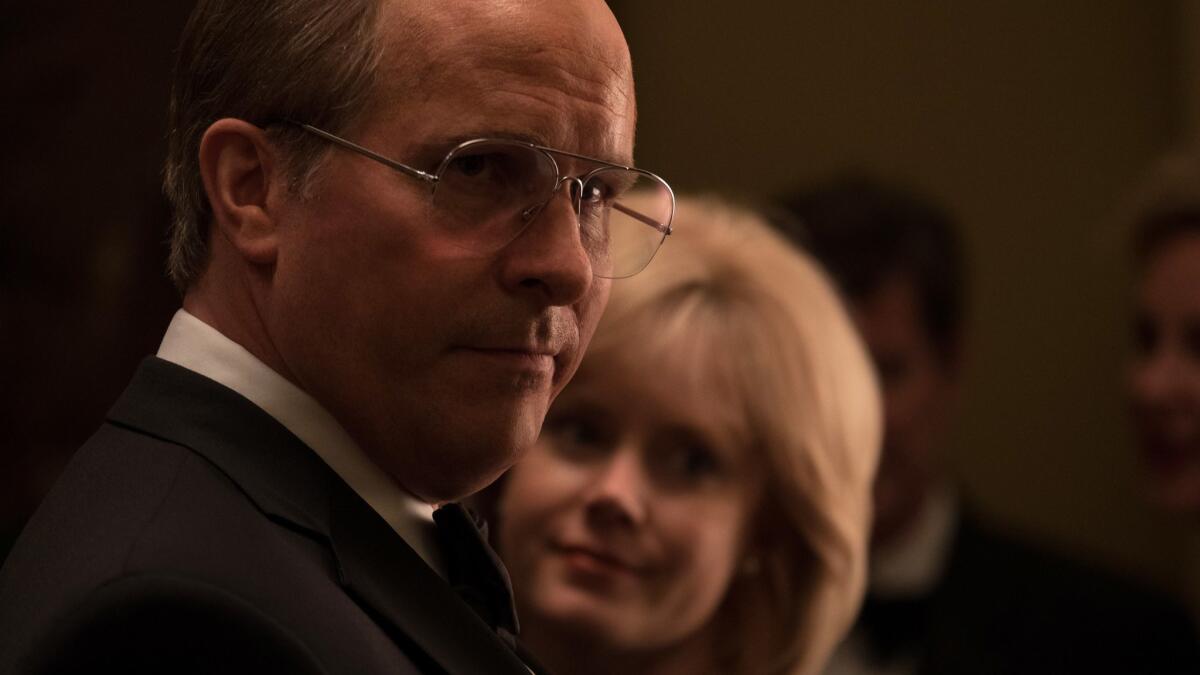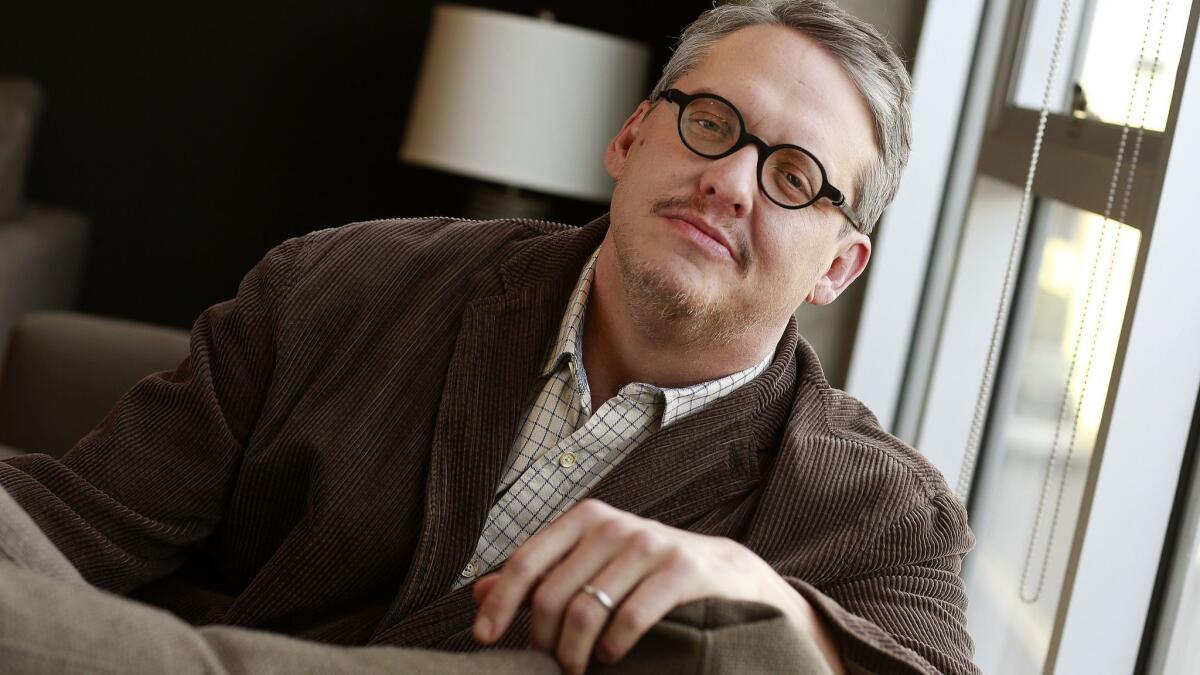Adam McKay weighs in on āViceāsā Golden Globe nominations and how the film reflects on power and the world we live in

āViceā led the Golden Globes nominations on Thursday morning, being recognized in six categories. Adam McKay was honored as the director, writer and producer of the movie, which also received a nomination in the category of best motion picture, musical or comedy. That category might not seem so surprising a place for the filmmaker behind āStep Brothers,ā except that āViceā is a clear-eyed yet scathing portrait of former Vice President Dick Cheney ā played by Christian Bale in a transformative performance that spans decades.
Where are you right now; where did you get the news?
We are in London; weāre over here for a couple of days doing some screenings and a little bit of press. So we had the luxury of watching it while eating lunch in a very civilized way. Obviously couldnāt have been more thrilled with the results.
In particular, āViceā led the nominations with more than any other movie, with nominations for Christian Bale, Amy Adams and Sam Rockwell, and you were recognized for both directing and writing. That must be very exciting.
Really exciting. It was obviously an ambitious, challenging movie ā it covers, five, six decades of history. And I felt great for the actors. These actors just went the whole nine yards [with] such passionate, detailed performances, and I loved seeing so many of them acknowledged.
Now the Globes being the Globes, just having the movie classified as a comedy, how do you feel about that?
We struggled with it. I actually did not have a clean answer, and I sort of told the Hollywood Foreign Press, you help me decide. I really think the movie in some ways mirrors the times that we live in, and half the time I canāt decide if weāre living in an absurdist comedy or a Greek tragedy. And thatās kind of the way the movie is; there are parts that are very tragic and dark and there are parts that are very absurd. So itās not crazy for it to be comedy, but it also wouldnāt have been crazy for it to be in drama.
FULL COVERAGE: 2019 Golden Globe nominations Ā»
As people are starting to respond to the movie, about the rise of Dick Cheney, theyāre asking what the film has to say to our current moment. For you, what do you think this story has to say to right now?
I think foremost, and this is all credit to Christian Baleās and Amy Adamsā performances, itās a portrait of power and a specific breed of power, American power. And I think in seeing that, through these incredible performances, what you start to get a sense of is this scope of American history and how things changed. And it actually was pretty freaky while we were making the movie, so many elements of it kept lining up with things that were popping up in the daily news, certain words and themes and ideas of the type of power that carried Dick Cheney. Itās constantly in the news. I knew the movie was going to resonate with what was going on in the world today; I had no idea it was going to resonate as much as it does.
Your conception of the Cheneys, in particular the relationship between Dick and Lynne, how did you come to that?
I was definitely intrigued by Cheney; he was a bit of mystery. Heās not a guy who seeks the spotlight, which is also what I liked about this story, because heās a guy who changed history about as much as anyone, and what surprised me is what a central part Lynne Cheney is in the Dick Cheney story. Without her, Iām not sure we have a Dick Cheney. To this day in Casper, Wyo., they say whoever she married would have been president or vice president. An incredibly smart, driven, ambitious woman who really pushed Dick Cheney out of being what he could have been, just a local townie who hung power lines for the state. Sheās a huge part of the movie and, really, when I think of Dick Cheney, I think of Dick Cheney and Lynne Cheney almost as one.
The portrait of Dick Cheney that you get is: Heās a guy who just wants to go fishing.
Lynne Cheney actually said, āIf you want to understand my husband you just have to know one thing, heās a fly fisherman.ā That quiet attention to detail that he has, that patience to stand in one place in a river, is exactly the kind of a skill that can turn you into a bureaucratic master in Washington, D.C. He really just has a long view of the game and he just doesnāt miss a trick. He really is kind of a genius in that sense.
Was the research process on this film different from āThe Big Short:? How did the story come together?
With āThe Big Shortā I really had to educate myself about economics in general. Obviously, the book gave me a lot of information. I wanted to make sure I understood the financial world, economics, the global economy, so I did a lot of research on that side. With this, there were a lot of great books on Dick Cheney, a lot of great articles, a lot of great interviews, but there wasnāt one telling the story I was excited by, so I had to read through everything. Then I had to read through the people that he worked with, I had to read through all of their biographies. This is definitely the most amount of research Iāve ever done on a project. It was months and months and months, and kind of never really stopped all through the process. And that included the actors also going in and doing a tremendous amount of research. But it had the excitement behind it of really trying to crack a mystery, of who is Dick Cheney. That was the driving question of the movie. And the actors really went after that as well.

Do you feel like you understand him any better now? Do you feel like youāre more inside his head than when you started?
For sure. Thereās a bunch of different ways to understand him, but what I found that I definitely didnāt have as much of in the beginning was his humanity, and I also, oddly, found a little bit of sadness for his story. Thereās a little bit of a tragedy to it. And in no way do I want to diminish the hundreds of thousands of people who lost their lives in Iraq, the people who were tortured and all the horrible, horrible things that went around that time, but I was surprised to really see a degree of humanity in him and in his family. And I think in a way thatās what we set out to do with the movie. We really donāt believe thereās any such thing as heroes and villains and good people and bad people. You have to understand the story, and in that way you understand the bigger picture. Heās a very complicated guy, itās a complicated story with a lot of people circling around it. By the end, I viewed him as a person, which I didnāt entirely expect to get to, but we did.
Around the memorials for George H.W. Bush, Cheney seems to be reemerging. And I donāt know if you feel the movie is a part of that, but what is it like for you now when you see the actual Dick Cheney in public?
They love to do that, though, donāt they? They kind of rehab everyone. Remember when Nixon was coming out years ago? āOh, heās kind of an elder statesman.ā You knew it was going to happen as well with Cheney. He had little moments before with his daughter Liz. Itās the way they do it; everyone goes from being questionable, being challenged, being controversial to being venerable. Itās kind of the American way. So Iām not surprised. Heās been on a lot of shows and he was out there a lot, and did it have anything to do with our movie trailer and the fact that weāre doing this? Thatās a good question. It did occur to me, but I donāt know a definitive answer.
I want to be sure to ask you about Christian Baleās performance and his transformation. When he agrees to do something like this, do you get more than you expected? Were you ever surprised by how startling that transformation was?
Without a doubt. I knew he was going to do incredible work and always had him in mind for the role. In a way the movie was sort of built around him. And even still I was shocked by the place he got to. Just the level of detail, the layers of psychological understanding mixed with physical affect, I donāt think Iāve ever witnessed anything like it.
And just a last thing, what do you hope people take away from the movie? What would you hope its impact might be?
The movie operates on a couple of different levels, so I donāt think there is one clear takeaway. Like I said, itās a portrait of power, so I think as a character sketch I would love people to be thinking about how power affects people, how it changes who they are, how it can change the world around us. I donāt think we talk about that enough. I think it shows a sweep of American history, itās not just some random series of events that got us to where we are in 2018 going into 2019, and thatās a very distinct story and it so happens that Dick is in the middle of a lot of that story. Thereās also just a lot of information and pieces of detail and different characters that just give you a sense of the hallways of power, what itās like to be inside the White House. It would be great if we demystified some of that for an audience. Iām seeing that in a lot of young peopleās reactions, people in their 20s are really kind of lit up by this movie, and thatās encouraging to me.
More to Read
The biggest entertainment stories
Get our big stories about Hollywood, film, television, music, arts, culture and more right in your inbox as soon as they publish.
You may occasionally receive promotional content from the Los Angeles Times.











